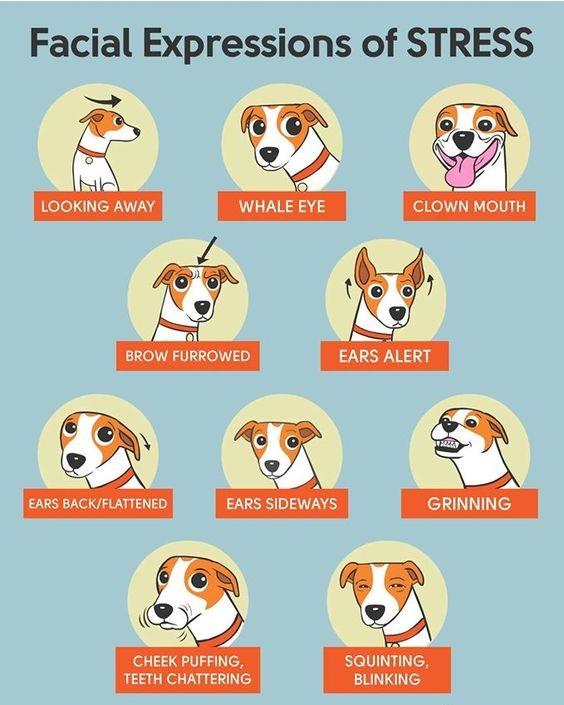To stop a dog from barking at night, ensure they get enough exercise and mental stimulation during the day. Consider covering the windows to block their view and using white noise to minimize outside sounds. Additionally, create a comfortable sleeping space and establish a consistent nighttime routine to help them feel secure. Consistent positive reinforcement and training can also help modify their behavior. Dealing with a dog that barks excessively at night can be challenging for both the owner and the neighbors.

However, understanding the underlying reasons for this behavior and implementing appropriate techniques can make a significant difference. By addressing the dog’s physical and psychological needs, as well as establishing clear boundaries, owners can effectively reduce excessive barking and ensure a peaceful night’s rest for everyone involved. Let’s explore some effective strategies to help stop a dog from barking at night.
Understanding The Issue
Learn effective ways to stop your dog from barking at night without resorting to harmful methods. Discover practical tips to understand the issue and establish a peaceful sleep routine for both you and your furry friend.
Dogs barking at night can be a nuisance for both pet owners and neighbors. Not only can it disturb your peaceful sleep, but it can also cause stress and frustration. Understanding the reasons behind this nighttime barking is the first step in resolving the issue and achieving a peaceful night’s sleep for everyone involved. In this article, we will explore how to identify the reasons behind your dog’s barking and the negative effects it can have.

Credit: suburban-k9.com
Identifying The Reasons
Your furry friend may be barking at night due to a variety of reasons. Identifying these reasons is crucial in finding an appropriate solution. Some common causes include:
- Loneliness or separation anxiety: If your dog is left alone for long periods during the day or night, they may resort to barking as a response to their loneliness.
- Unwanted intrusions: Dogs have an instinct to protect their territory. They may bark at noises, strangers passing by, or other animals that they perceive as intruders.
- Physical discomfort or pain: Dogs may bark at night if they are experiencing discomfort or pain, such as arthritis, urinary tract infections, or gastrointestinal issues.
- Lack of exercise or mental stimulation: Dogs need regular exercise and mental stimulation to keep them happy and balanced. Without proper outlets for their energy, they may become restless and bark excessively.
- Attention-seeking behavior: Dogs are intelligent creatures and may resort to barking to gain attention, whether they are seeking playtime, food, or simply wanting you to acknowledge their presence.
- Old age or cognitive decline: Just like humans, dogs can develop age-related cognitive decline, leading to confusion, restlessness, and increased vocalization, especially at night.
The Negative Effects Of Nighttime Barking
Nighttime barking can have several negative effects, not only on the pet owner but also on the dogs themselves. These effects include:
- Sleep disruption: Continuous barking at night can severely disturb your sleep, leading to increased fatigue and decreased productivity during the day.
- Neighbors’ complaints: Persistent barking can strain neighborly relationships and may result in complaints or even legal consequences.
- Elevated stress levels: Consistent barking can cause stress and anxiety for both the dog and the owner, negatively impacting their overall well-being.
- Strained owner-pet bond: Continuous nighttime barking can strain the bond between the pet owner and their furry companion, leading to frustration and decreased enjoyment of pet ownership.
Now that we understand the reasons behind nighttime barking and the negative effects it can have, let’s move on to practical solutions in our next section.

Credit: jimsdogwash.net.au
Creating A Calm Sleeping Environment
Creating a calm sleeping environment is essential for stopping a dog from barking at night. By establishing a consistent routine, designating a comfortable sleeping space, and providing the right stimulation, you can help your dog feel secure and relaxed, leading to quieter nights for both of you.
Establishing A Consistent Routine
A consistent routine helps signal to your dog that it’s time to wind down and sleep. Regular exercise during the day can help tire out your dog, making them more likely to sleep through the night. Additionally, establishing a regular feeding schedule can help regulate your dog’s bathroom breaks, reducing the likelihood of barking due to discomfort or the need to go outside.
Designating A Comfortable Sleeping Space
Choose a quiet, dark, and comfortable sleeping area for your dog. This could be a cozy bed in a quiet corner of the room or a crate covered with a blanket to create a den-like atmosphere. Providing familiar bedding or a favored toy can also help your dog feel safe and secure in their sleeping space.
Addressing Physical And Mental Stimulation
Addressing Physical and Mental Stimulation is crucial in preventing excessive barking at night in dogs. By providing sufficient exercise and engaging their minds with enrichment activities, you can help your furry friend expel energy and feel mentally satisfied, leading to a quieter night for both you and your dog.
Providing Sufficient Exercise
Dogs, especially those with high energy levels, need sufficient physical activity during the day to reduce nighttime restlessness. A tired dog is more likely to sleep through the night without barking excessively. Aim for daily walks or play sessions to drain their energy reserves.
Engaging The Dog’s Mind With Enrichment Activities
Incorporate mental stimulation into your dog’s daily routine. Implementing activities such as puzzle toys, training sessions, or interactive games helps keep their minds occupied and reduces the likelihood of barking out of boredom or anxiety. Including enrichment activities will also provide mental satisfaction, promoting a peaceful night’s sleep.

Credit: www.youtube.com
Implementing Training Techniques
If you’re tired of your furry friend barking their head off every night, implementing training techniques can help resolve this issue. By using positive reinforcement methods and teaching the ‘Quiet’ command, you can successfully stop your dog from barking at night.
Positive Reinforcement Methods
Positive reinforcement is a highly effective way to train your dog and discourage nighttime barking. By rewarding good behavior, you can establish new habits and decrease the likelihood of excessive barking. Here are some positive reinforcement techniques you can use:
- Create a rewarding environment: Make sure your dog has plenty of toys, treat puzzles, and comfortable bedding in their sleeping area.
- Use treats as rewards: Whenever your dog behaves quietly during the night, give them a small treat as a reward. This positive reinforcement will encourage them to continue the behavior.
- Praise and cuddles: Dogs thrive on attention and love. When your dog remains quiet at night, praise them and offer affectionate cuddles. This will reinforce their good behavior.
Teaching The ‘Quiet’ Command
Teaching your dog the ‘Quiet’ command is an essential step in stopping their barking at night. Here’s how you can do it:
- Choose a quiet environment: Find a calm and quiet area where you can train your dog without distractions.
- Wait for the barking: Start the training when your dog naturally starts barking.
- Use a cue word: Right after your dog barks, say a cue word like “Quiet” or “Enough” in a firm but gentle tone.
- Wait for silence: As soon as your dog momentarily stops barking, even for a second, reward them with a treat and praise.
- Repeat and reinforce: Continue practicing this training exercise, gradually increasing the time between the cue word and the reward. Be consistent and patient with your dog.
Remember, consistency and positive reinforcement are key to training your dog. With patience and persistence, you can successfully stop your dog from barking at night. Implement these training techniques and enjoy peaceful nights with your beloved four-legged friend.
Preventing Triggers And Distractions
Looking for ways to stop your dog from barking at night? Prevent triggers and distractions by creating a calm environment and providing plenty of exercise and mental stimulation during the day.
Reducing External Noises And Lights
Table:
| Noise | Tips to Reduce |
|---|---|
| Street Noise | Use earplugs or a white noise machine in the bedroom. |
| Neighboring Dogs | Close windows or use soundproof curtains to muffle outside sounds. |
| Barking from Other Dogs | Talk to your neighbors about finding a solution to reduce their dog’s barking. |
| Light | Close curtains or use blackout shades to eliminate bright lights that may trigger barking. |
Reducing external noises and lights is crucial in creating a calm environment for your dog to sleep in. Street noise, barking from neighboring dogs, and bright lights can easily startle and rile up your furry friend, leading to persistent barking at night. To combat this, use earplugs or a white noise machine in the bedroom to mask external sounds. Close windows or utilize soundproof curtains to muffle outside noises such as traffic or neighboring dogs.
Minimizing Separation Anxiety
Separation anxiety can often be a major catalyst for your dog’s nighttime barking. A sense of distress and unease may overcome them when separated from you or other family members, causing them to vocalize their anxiety. Here are some practical tips to help minimize separation anxiety: Unordered List:
- Create a consistent routine for leaving and returning home, so your dog knows what to expect.
- Gradually extend the time you are away from your dog, starting with short periods and gradually increasing.
- Provide your dog with interactive toys or treats to keep them engaged and distracted while you’re away.
- Avoid making a big fuss when leaving or returning home; keep your greetings calm and low-key.
- Consider crate training your dog to provide them with a safe and secure space.
Establishing a consistent routine for leaving and returning home can help your dog feel more secure and less anxious about your absence. Start by leaving them alone for short periods and gradually increase the duration over time. This gradual approach will help your dog adjust to longer periods of separation. Providing interactive toys or treats can keep them occupied and redirected while you’re away. Remember to keep your greetings calm and low-key to avoid elevating their excitement.
Crate training is another effective method to offer your dog a safe and secure space where they can find comfort and relaxation while you’re not home. By taking steps to reduce external noises and lights and minimizing separation anxiety, you can effectively address the triggers and distractions that cause your dog to bark at night. Implementing these strategies will not only help promote peaceful nights but also contribute to your dog’s overall well-being and happiness.
FAQ Of How To Stop A Dog From Barking At Night
How Can I Prevent My Dog From Barking At Night?
To prevent your dog from barking at night, establish a consistent routine, provide physical and mental exercise, minimize noise stimuli, ensure a comfortable sleeping environment, and consider training techniques such as using a white noise machine or using positive reinforcement to reward quiet behavior.
Why Does My Dog Bark At Night?
Dogs may bark at night due to various reasons including boredom, loneliness, anxiety, fear, or to alert you of potential intruders. It is important to identify the underlying cause and address it through proper training, exercise, or seeking professional help if needed.
How Do I Train My Dog To Stop Barking At Night?
To train your dog to stop barking at night, implement positive reinforcement techniques such as rewarding calm behavior, practicing desensitization to nighttime sounds, using distraction techniques, and ensuring consistent training and a secure sleeping area. Be patient and consistent in your training efforts.
Conclusion
To successfully stop your dog from barking at night, consistent training and understanding their needs are vital. By identifying the root cause, giving them adequate exercise, and creating a comfortable sleeping environment, you can significantly reduce nighttime barking. Remember, patience and positive reinforcement are key in helping your furry friend adjust their behavior.
With these strategies in place, you can pave the way for peaceful and restful nights for both you and your dog. Share your own experiences and tips with us in the comments below! Happy training!



